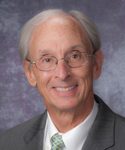Two years ago, veteran leaders of the Pennsylvania Rheumatology Society (PRS)—established 20 years prior—made an important decision to get early career rheumatologists more involved.
“We thought younger rheumatologists were under-represented, and we wanted to give them a voice [so they would] better understand a wider range of practice issues our society could address,” explains Alfred Denio, MD, PRS vice president and rheumatology fellowship director at Geisinger Medical Center in Danville, Penn.
Engaging a Broader Membership
To ignite practice discussion among early career rheumatologists and across multiple generations, PRS leaders also began hosting an annual scientific meeting held centrally within the state. Of the society’s 140 members, more than 100 registrants attend the annual meeting.
To encourage fellow participation in educational content at the meeting, the H. Ralph Schumacher Award is given to one of three finalists submitting a case to the Thieves’ Market. Those whose submissions were not selected for an award are encouraged to present in a poster session.
“This is a great way for future rheumatologists to get involved in the meeting and society activities, while also giving us a way to understand the issues of younger professionals,” Dr. Denio says. This year, they are also granting $1,000 scholarships to up to 20 fellows to defray the cost of attending [the ACR/ARHP Annual Meeting.]”
While encouraging a younger voice, he explains that PRS leaders wanted to ensure experienced rheumatologists also maintained a means to share their knowledge, so a Past President’s Council was formed.
Dr. Denio says the council has provided a valuable platform for experienced society leaders, such as Terence Starz, MD, to share their institutional memory of the society and advance the society’s advocacy voice.
Patient-Centric Advocacy on Multiple Fronts
With his longtime involvement in advocacy throughout his 41 years in rheumatology practice, Dr. Starz—a rheumatologist in Western Pennsylvania and clinical professor of medicine in the Division of Rheumatology at the University of Pittsburgh School of Medicine—works to address critical practice issues on all legislative fronts. This includes local advocacy with the Western Pennsylvania chapter of the PRS, through state collaboration with the PRS, and with other physicians on both state and national levels through the Arthritis Foundation, the Pennsylvania Medical Society and the ACR.
“The way we structure our state society really works through local groups to be the representatives of rheumatologists and our patients throughout the state and beyond,” Dr. Starz explains. “In any of our advocacy efforts, we have to incorporate our thinking about how to best serve the needs of our patients.”
He recently returned from an advocacy visit to Harrisburg, Pa., to speak with legislators about prior authorizations and patient access to care. “These opportunities give us the chance to deliver a very specific, directive message that makes a difference.”
Drs. Starz and Denio agree that the work of the PRS to engage multiple generations and practice perspectives provides an invaluable forum to directly address critical rheumatology practice issues within the profession and beyond, to colleagues in other specialties, and to legislators eager to understand practice issues impacting rheumatology physicians and their patients.
For More Information
Learn more about ACR State Societies and state advocacy.
Read more from Dr. Starz on advocating for healthcare improvement.
Carina Stanton is a freelance science journalist in Denver.

